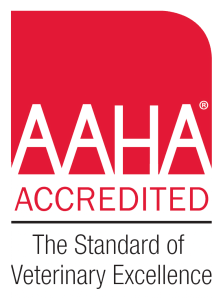



Pet Nutrition Facts
“”Earlier this summer, and Wittenburg traveled to Dayton, Ohio to visit and tour the Royal Canin Pet Health Nutrition Center. Royal Canin is one of only four pet food companies which have veterinary nutritionists on team to make sure their diets are complete and balanced. (The other companies being, , and .)
One of these veterinary nutritionists discussed the truths about many misconceptions regarding pet nutrition and currently available diets.
Animal and Plant By-Products are Good for Your Pet
* Many people believe by-products and secondary products (i.e., parts of the animal or plant that humans typically do not consume) are not healthy for our pets. By-Products provide high-quality protein, fat, vitamins and minerals and play vital roles in renewing organs and muscles, supporting the immune system and supplying energy.
Examples of these by-products or secondary products include internal organs, chicken stock, beet pulp, and gelatin. And some people actually eat some of these products! Have you ever heard of tripe or haggis? So having the term by-products in the ingredient list does not indicate anything about a pet food’s quality, cost, or nutritional value.
What’s Better – “Real Meat” or Meal?”
* What about ‘real meat’ as the first ingredient instead of ‘meal?’ Once again, having ‘meat’ as the first ingredient does not indicate anything about the quality of the pet food. A “Meal” indicates that the ingredient is rendered. It also means the water and fat content have been removed and the product is ground into a meal. Meat is 70-80% of water compared to the meal, which is only 10% water. Since ingredients are listed in descending order of weight on pet food labels, when meat is listed as number one ingredient followed by a meal, most of the protein and nutrients is actually coming from the MEAL and NOT the meat. Many pet food companies falsely advertise the benefit of having meat as the number one ingredient.
Grain-Free Diets Not so Good?
* Finally, what about grain-free diets? Many pet food companies also mention corn and other grains as being ‘fillers’ and not having nutritional value. In fact, these carbohydrates have high nutritional value and provide a high-quality protein source (especially corn) as well as essential vitamins and minerals.
In regards to grains causing potential allergies in pets, these are quite uncommon. Animal proteins more commonly cause food allergies in pets (for example, corn is responsible for less than 5% of food allergy cases in pets). Grain-free diets contain alternative carbohydrate sources such as potatoes, grains, or legumes. Many grain-free diets have up to 80% of their food being potato-based. Often these diets have less nutritional value than non-grain free diets and can even cause a deficiency in specific vitamins/minerals as previously discussed in past blogs regarding an association with cardiomyopathies in large breed dogs.
Discuss Nutrition Options with Your Veterinarian
So how can you determine if a pet food is a high quality? First of all, discuss options with your veterinarian based on your individual pet’s needs. Use foods produced by reputable companies and always feel free to call the manufacturer and discuss products with them directly.
Some questions to ask:
*Does the company employ full-time qualified nutritional scientists or board-certified nutritionists?
* Does the company perform research using their products?
*How does the company practice quality and food safety on raw materials and finished products?
About Brook-Falls
Brook-Falls Veterinary Hospital and Exotic Care is dedicated to providing quality care to all companion pets and exotic animals. Brook-Falls is a Menomonee Falls, WI-based full-service veterinary hospital with an extensive range of comprehensive medical, dental, diagnostic, and surgical services to meet the varying needs of all patients. Brook-Falls Veterinary also offers informational and educational media and seminars for pet owners by way of blogs, digital TV series (Expert Veterinary Television), e-books, whitepapers, infographics, and more.
For more information, contact Brook-Falls Vet


